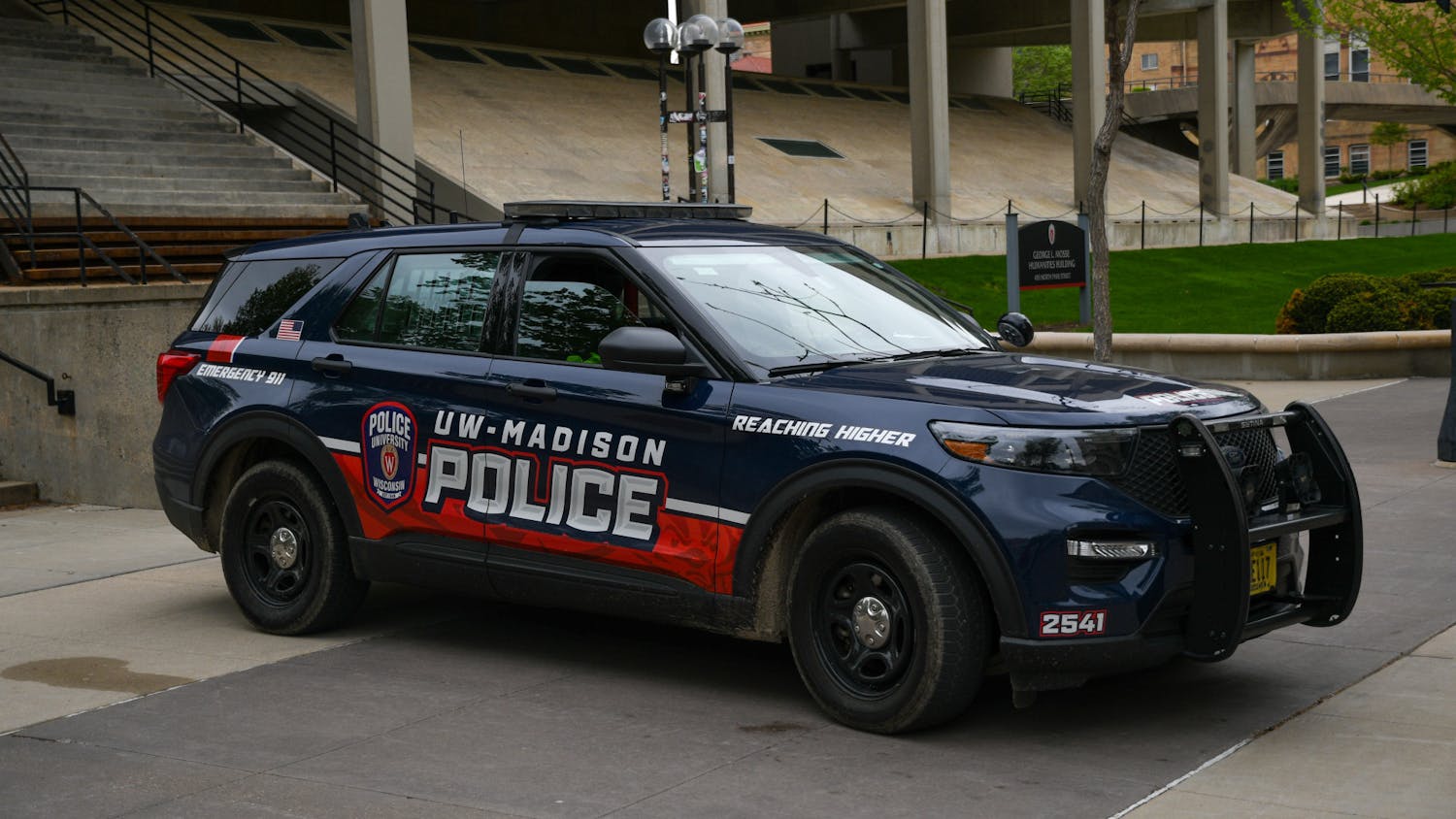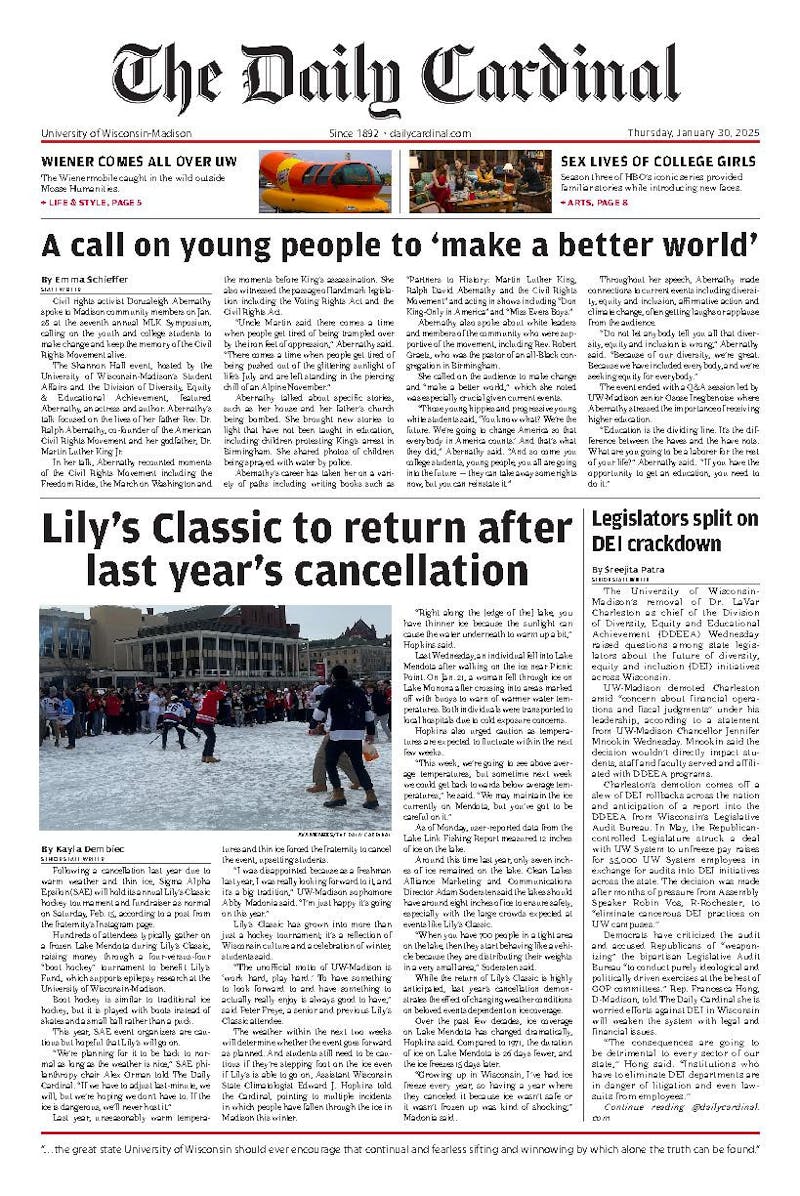On a night the world saw Wisconsin and the rest of the country elect President Barack Obama to a second term, Wisconsin citizens also voted to turn the Wisconsin state Senate over to Republicans, giving the GOP complete control of the Wisconsin state government.
The contrast between voters’ support of Republican state legislators and Democratic national figures stems from Wisconsin’s recent history of political polarization, according to University of Wisconsin-Madison Political Science Professor David Canon.
“The state is not predictable in terms of its politics and is truly a purple state,” Canon said.
Democrats had a slim 17-16 lead in the state Senate before the Tuesday elections, but lost one of the 11 seats up for re-election Tuesday night. A second election had not been called by press time.
The state Senate race ultimately came down to three contested seats, all of which were previously held by Democrats.
State Sen. Dave Hanson, the Democratic incumbent from the 30th state Senate District representing a portion of the Green Bay area, was the only Democrat from the contested districts to win a seat in the Senate.
Republican Tom Tiffany defeated Democrat Susan Sommer in District 12, which covers the Fond du Lac-Oshkosh area. The race between Republican Rick Gudex and Democratic incumbent Jessica King for the open-seat in the 18th District had not been called by press time. At the time of printing, Tiffany held a 590-vote lead.
Republican control of the state Senate will give Gov. Scott Walker the chance to pass legislation to pursue a Republican-centered agenda according to Canon. However, Canon said Walker and the legislature would not introduce any large-scale or controversial legislation.
“I don’t expect any huge changes in policy, more just tweaking things [the Republicans] have already done,” Canon said. “They might have to come back to [Act 10] again to have some tweaks to the collective bargaining bill.”
The largest move the Republicans might make, according to Canon, would be to reintroduce legislation that would allow mining in northern Wisconsin, which failed to pass the state Senate last year.





